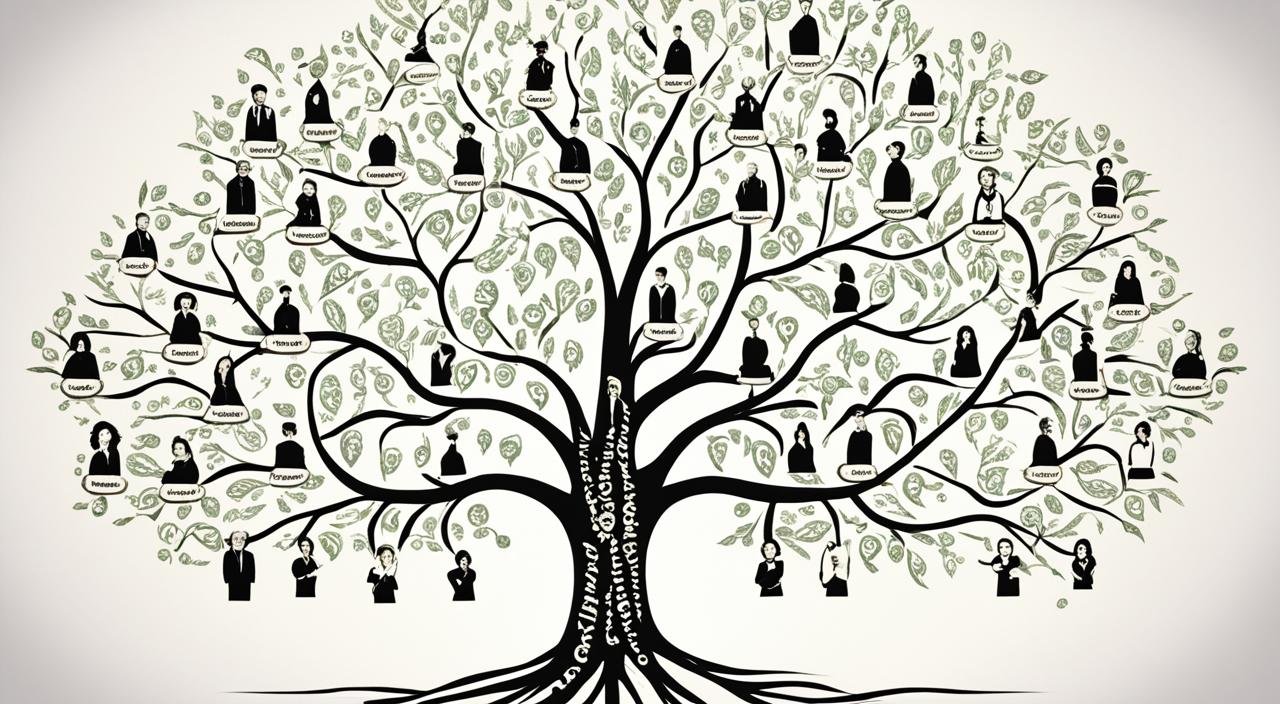Cancer is a scary disease that touches millions of lives around the world. In 2023, the National Cancer Institute found over 2 million people got cancer. Sadly, nearly 610,000 people died from it. But, research shows that more than 40% of these cases and nearly half of the deaths could have been prevented.
By choosing a healthy lifestyle, you can greatly lower your cancer risk. This article will share 7 effective ways to prevent cancer, as suggested by top health groups.
Key Takeaways
- Cancer is a leading cause of death worldwide, but over 40% of cases and nearly half of deaths are preventable.
- Making healthy lifestyle choices can significantly reduce your cancer risk.
- Strategies like avoiding tobacco, maintaining a balanced diet, and getting regular exercise can help prevent cancer.
- Protecting your skin from the sun, getting vaccinated against cancer-causing viruses, and practicing safe sex are also important prevention measures.
- Regular cancer screenings and early detection can increase the chances of successful treatment and survival.
Avoid Tobacco and Secondhand Smoke
Tobacco use is a big reason for cancer, causing 30% of all cancer deaths. Smoking is linked to many cancers, like lung cancer, mouth cancer, throat cancer, voice box cancer, pancreatic cancer, bladder cancer, cervical cancer, and kidney cancer. Being around secondhand smoke also raises lung cancer risk.
Also Read :How Does Coronavirus Impact Pets?
Smoking and Secondhand Smoke Increase Cancer Risk
No tobacco product, including cigarettes, e-cigarettes, cigars, chewing tobacco, hookahs, and waterpipes, is safe. These products have harmful chemicals that can harm cells and lead to cancer.
Quitting Tobacco and Avoiding Exposure
Stopping tobacco use and staying away from secondhand smoke are key to cancer prevention. Quitting lowers the risk of cancer a lot. Even a little secondhand smoke can be bad for your health.
“Tobacco use is the single largest preventable cause of cancer in the world.” – World Health Organization
By not using tobacco and avoiding secondhand smoke, you can lower your risk of many cancers. These steps are important for a good cancer prevention plan.
Maintain a Healthy Diet and Weight

Eating a balanced diet full of fruits, veggies, and whole grains can lower your risk of some cancers. This includes breast, prostate, lung, colon, and kidney cancer. The American Institute for Cancer Research suggests eating like the Mediterranean diet. This means eating healthy fats from olive oil and nuts, and less processed and red meat, and alcohol.
Eat a Plant-Based Diet with Fruits and Vegetables
Adding colorful fruits and veggies to your meals gives you lots of cancer-fighting nutrients and antioxidants. These foods are also low in calories and high in fiber. This helps you stay at a healthy weight and lowers your cancer risk. Try to fill at least two-thirds of your plate with plant-based options.
Limit Processed Meats and Alcohol
Processed meats like bacon, sausage, and deli meats can increase your risk of colorectal cancer. Drinking too much alcohol is also linked to more cancer risks, including breast and colon cancer. To lower your risk, eat less processed meat and drink less alcohol.
“Maintaining a healthy weight and following a balanced, plant-based diet can significantly reduce the risk of certain cancers, such as breast, prostate, lung, colon, and kidney cancer.”
Also Read :What Are The Types Of Business Insurance?
Exercise Regularly and Stay Active

Regular physical activity is key in fighting cancer. Studies show that moderate to vigorous exercise lowers the risk of cancers like breast and colon cancer. The American Institute for Cancer Research suggests doing at least 150 minutes of moderate exercise or 75 minutes of vigorous exercise weekly to prevent cancer.
Any physical activity, like a brisk walk, bike ride, or playing pickleball, helps lower cancer risk. Mixing moderate and vigorous exercise is best for a complete approach to cancer prevention.
| Type of Exercise | Recommended Weekly Duration |
|---|---|
| Moderate Exercise | At least 150 minutes |
| Vigorous Exercise | At least 75 minutes |
Being active and adding regular exercise to your life is a simple way to manage your cancer risk. So, put on your sneakers, start moving, and take a step towards a healthier future.
“Regular physical activity is one of the most important things people can do to lower their risk of cancer.”
– American Institute for Cancer Research
Also Read :What Are The Benefits Of Pet Insurance?
Protect Your Skin from the Sun

Skin cancer is the most common cancer in the U.S. and can be prevented. To lower your risk, it’s key to shield your skin from the sun’s harmful UV rays.
Avoid Midday Sun and Use Sunscreen
The sun’s rays are strongest from 10 AM to 4 PM. Try to stay indoors during these peak hours. If you’re outside, use a broad-spectrum sunscreen with SPF 30 or higher. Remember to reapply every two hours, or more if you’re swimming or sweating.
Avoid Tanning Beds and Sunlamps
Tanning beds and sunlamps give off UV radiation, raising your skin cancer risk. Stay away from these devices. They can harm your skin over time and boost your risk of cancer.
| Tip | Benefit |
|---|---|
| Seek shade during peak sun hours | Reduces exposure to harmful UV rays |
| Use broad-spectrum sunscreen with SPF 30+ | Protects skin from UVA and UVB rays |
| Avoid tanning beds and sunlamps | Eliminates the risk of UV-induced skin cancer |
By taking these easy steps, you can greatly lower your risk of skin cancer. Protecting your skin from the sun’s harm is crucial. Prevention is the best way to keep your skin healthy and cancer-free.
Also Read :What Foods Should You Avoid With High Blood Pressure?
Get Vaccinated Against Cancer-Causing Viruses
Some viral infections, like human papillomavirus (HPV) and hepatitis B, can raise the risk of certain cancers. Luckily, vaccines are available to protect against these viruses.
HPV Vaccine for Cervical Cancer Prevention
The HPV vaccine is key in fighting cervical cancer. It shields against over 90% of HPV-related cancers, including those of the cervix, anus, and some head and neck cancers. The Centers for Disease Control and Prevention (CDC) suggest the HPV vaccine for people aged 9 to 45. It works best when given early.
Hepatitis B Vaccine for Liver Cancer Prevention
The hepatitis B vaccine is also crucial for preventing liver cancer. Hepatitis B can cause chronic liver disease and sometimes liver cancer. Vaccinating against hepatitis B can prevent this dangerous cancer.
Discussing cancer-prevention vaccines with your healthcare provider is an easy way to lower your cancer risk. This step can ease your mind and protect your health for years to come.
Cancer Screening and Early Detection

Finding cancer early is key in fighting it. Regular self-exams and screenings can spot cancer early, when it’s easier to treat. The Centers for Disease Control and Prevention (CDC) and the American Cancer Society suggest tests for breast, cervical, colorectal, and lung cancer.
Regular Self-Exams and Screenings
Doing self-exams, like checking your breasts monthly and your skin yearly, helps you know your body. It lets you spot changes early. Also, talking with your doctor about your health history can guide your screening schedule.
Also Read :How Do I Choose The Right Small Business Insurance Policy?
Breast, Cervical, Colorectal, and Lung Cancer Screenings
- Breast cancer: Women over 40 should get mammograms every one to two years.
- Cervical cancer: Women aged 21 to 65 should get Pap and HPV tests regularly.
- Colorectal cancer: Adults 45 and older should get colonoscopies.
- Lung cancer: High-risk people, like heavy smokers or those with a family history, might get low-dose CT scans.
Regular screenings and self-exams can greatly improve cancer treatment and survival chances. Talk to your doctor to make a screening plan that fits your risk factors.
“Regular cancer screenings are essential for early detection and prevention. They can be the difference between life and death.”
– American Cancer Society
Also Read :What Are The Fees And Interest Rates For Payday Loans?
Cancer Risk and Family History

Knowing your family’s medical history can give you important clues about your own cancer risk. If your close relatives have had certain cancers like breast, ovarian, uterine, or colorectal cancer, you might face a higher risk too. The Centers for Disease Control and Prevention (CDC) suggest getting your family’s health history to understand your cancer risk and how to prevent it.
Cancer often has a genetic link, and some inherited mutations make people more likely to get certain cancers. Knowing your family history helps you and your doctor decide if genetic tests or more cancer checks are needed.
- Ask about your immediate family, like parents, siblings, and kids, and also your extended family, like grandparents, aunts, uncles, and cousins.
- Keep track of any cancer cases in your family, including the type, when it was found, and the outcome.
- Talk to your healthcare provider about this info to get advice on how to lower your cancer risk and prevent it.
Being proactive with your family history helps you make smart health choices and lower your cancer risk.
“Knowing your family history is one of the most important steps you can take to reduce your risk of cancer.”
Work closely with your healthcare provider and use resources from the CDC and other trusted groups. This way, you can manage your cancer risk and focus on your health and well-being.
Also Read: What’s The Truth Behind Alternative Medicine?
Conclusion
While we can’t fully prevent cancer, a healthy lifestyle can lower your risk. Avoiding tobacco, eating a diet full of fruits and veggies, and staying active are key steps. Also, protect your skin from the sun, get vaccines, and have regular health checks.
Some risks, like family history, are beyond our control. Yet, our daily choices greatly affect our cancer risk. By following these cancer prevention tips, you can lower your risk and live a healthier life.
Preventing cancer is a continuous effort, not just a one-time action. Always be alert, take action, and work with your doctor to reduce your cancer risk. This way, you can keep your health in top shape.
FAQs
Q: What are the common types of cancer?
A: The common types of cancer include prostate cancer, ovarian cancer, brain cancer, thyroid cancer, blood cancer, and childhood cancer.
Q: What can cause cancer?
A: Cancer can be caused by various factors such as smoking, exposure to radiation, genetic mutations, unhealthy diet, and environmental pollutants.
Q: What is the role of the American Cancer Society in cancer care?
A: The American Cancer Society plays a vital role in providing support, information, and resources to cancer patients, survivors, and caregivers. They also work towards cancer research, prevention, and advocacy.
Q: How does cancer spread in the body?
A: Cancer spreads in the body through a process called metastasis, where cancer cells break away from the primary tumor and travel through the bloodstream or lymphatic system to form new tumors in other parts of the body.
Q: What are the signs and symptoms of cancer?
A: Common signs and symptoms of cancer may include unexplained weight loss, persistent fatigue, lumps or bumps, changes in bowel or bladder habits, persistent cough or hoarseness, and unexplained bleeding or bruising.
Q: How can I reduce my risk of developing cancer?
A: You can reduce your risk of developing cancer by maintaining a healthy lifestyle, avoiding tobacco products, limiting alcohol consumption, staying physically active, eating a balanced diet, protecting yourself from the sun, and getting regular screenings.
Q: What is the role of the National Cancer Institute in cancer research and treatment?
A: The National Cancer Institute is a leading agency for research on cancer. They fund and conduct research to better understand cancer, develop new treatments, and improve outcomes for cancer patients.
Source Links
- https://www.mayoclinic.org/healthy-lifestyle/adult-health/in-depth/cancer-prevention/art-20044816
- https://www.cancerresearchuk.org/about-cancer/causes-of-cancer/can-cancer-be-prevented-0
- https://health.ucdavis.edu/blog/cultivating-health/7-lifestyle-tips-to-reduce-your-cancer-risk/2024/02




